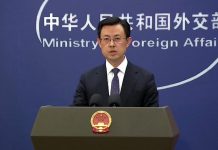BANGKOK, 25 March 2013 Academics participating in a discussion on the amnesty law agreed that an amnesty law is important, but suggested that the public should be engaged in the process.
During a public discussion entitled “Solutions on Amnesty Law and Political Standard Setting”, Kittisak Prokati, a law lecturer from Thammasat University, suggested that an amnesty law use South Africa’s amnesty process as a model. The African model required those who wanted to apply for amnesty to confess to their crimes and apologise in public, as well as take an oath not to repeat the crime, he said.
He added that there should be a committee to decide whether to grant amnesty to certain individuals, and it should be drawn from the government, the opposition, and the “people’s sector”. He also suggested that amnesty should be “conditional”, and could be revoked depending on the subsequent behaviour of those granted amnesty.
Kothom Areeya, the director of a research center on peace at Mahidol University, said he agreed with Mr Kittisak’s idea. He added that the opposition’s argument against an amnesty law focused on their belief that former Prime Minsiter Thaksin Shinawatra would benefit from the bill; however, this belief, Mr Kothom claimed, is unsubstantiated, given that all amnesty draft bills proposed so far precluded protest leaders and those who had the power to decided the direction of protests from being granted amnesty.
Meanwhile, Nirand Pitakwatchara, a National Human Rights Commissioner, said that an amnesty law should be enacted, but that the public must not let politicians control its drafting. Public participation is needed, he stated.




